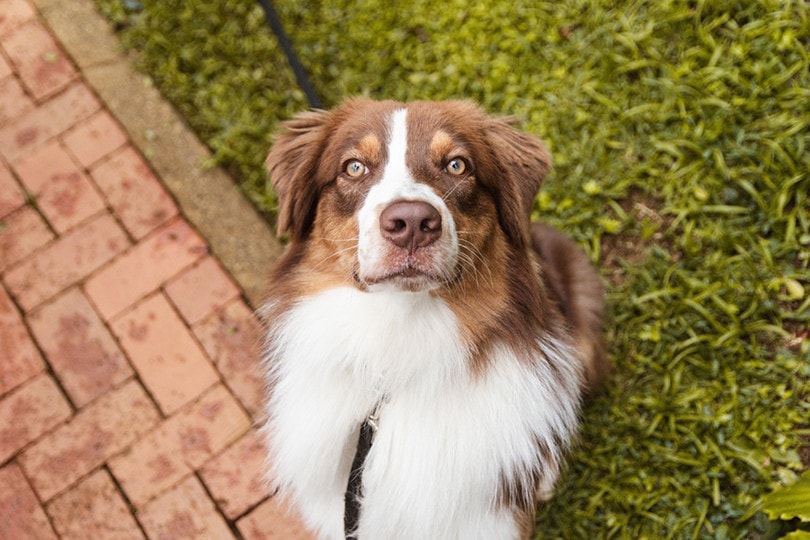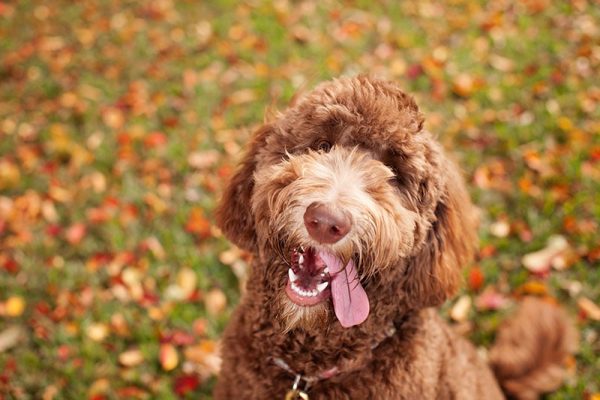In this article
The Australian Shepherd is a highly intelligent and versatile breed that excels at a variety of tasks. They are also very protective of their family and home, making them an excellent guard dog. However, they can also be very reserved around strangers, so it is important to socialize them from a young age. If you are considering adding an Australian Shepherd to your family, here is what you need to know about their protective instincts.

Australian Shepherds Are Natural Guardians
They were originally bred to work on farms and ranches, where they were responsible for protecting livestock from predators. This instinct carries over into their family life, where they will instinctively protect their loved ones from any perceived threat. While they are not aggressive dogs, they will bark and alert you to any potential danger.
They Are Very Reserved Around Strangers
Australian Shepherds are very loyal to their family and can be quite suspicious of strangers. It is important to socialize them from a young age so that they learn to accept new people into their life. Otherwise, they may bark and be standoffish when someone new comes around.
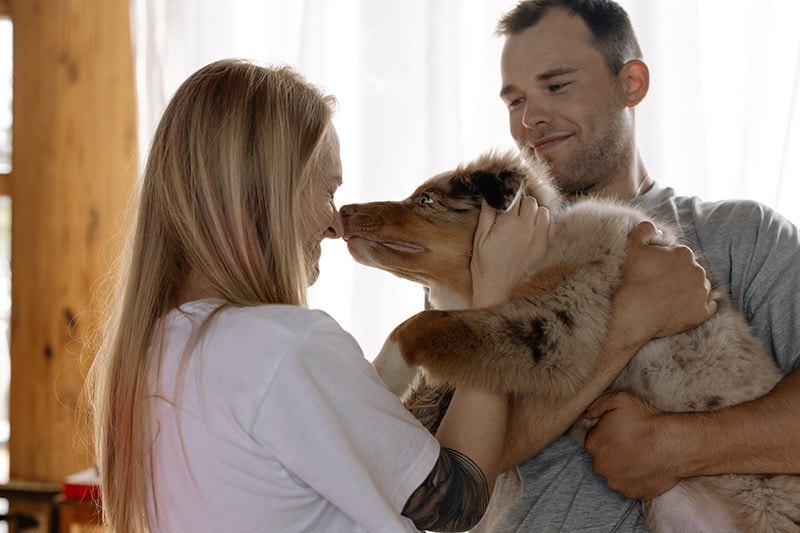
They Need Plenty of Exercise
Australian Shepherds are high energy dogs that need plenty of exercise to stay healthy and happy. Without an outlet for their energy, they can become bored and destructive. A daily walk or run is a great way to help them burn off excess energy and keep them from getting into trouble.
You’ll Need to Train Them to Put Their Protective Instincts to Good Use
While Australian Shepherds are naturally protective, they will need to be trained to use their instincts in a positive way. This means teaching them when it is appropriate to bark and alert you to a potential danger, and when they should remain quiet. It is also important to teach them not to be overly suspicious of strangers, as this can lead to them being unnecessarily fearful or aggressive. With the right training, an Australian Shepherd can be a great asset to your family.
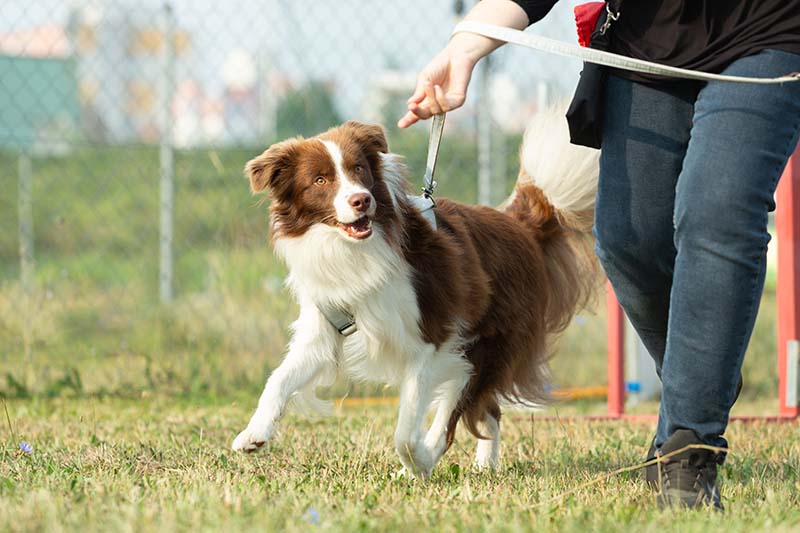

What Training Should I Give My Australian Shepherd?
If you want your Australian Shepherd to be a well-rounded, protective dog, it is important to give them the right training. This includes:
Basic Obedience Training
If you want your Australian Shepherd to be a well-rounded dog, it is important to give them a variety of training experiences. This includes obedience training, which will teach them basic commands such as sit, stay, come, and down. It is also important to socialize them from a young age, so that they learn to accept new people and situations.
If you need guidance on training your Australian Shepherd, we suggest you speak to a professional trainer or a vet.
If you need to speak with a vet but can't get to one, head over to PangoVet. It's our online service where you can talk to a vet online and get the advice you need for your pet — all at an affordable price!

Guard Dog Training
If you want your dog to be a guard dog, you will need to train them specifically for this role. Depending on the level of guarding you want your dog to do, sometimes you will need to seek out the help of a professional dog trainer for this. There are different levels and types of guard dog training, and some are more extensive than what you would be able to do at home.

Other Things to Know About Australian Shepherds
Temperament
Australian Shepherds are generally good-natured dogs, but they can have a bit of a stubborn streak. They need to be trained and socialized from a young age so that they learn to accept new people and situations. Without the proper training, they may be suspicious of strangers and bark excessively.
Health
Australian Shepherds are generally healthy dogs, but there are a few health conditions to be aware of. These include hip and elbow dysplasia, eye problems, and allergies. Be sure to talk to a veterinarian about the best way to keep your Australian Shepherd healthy and happy.
Grooming
Australian Shepherds are moderate shedders, so they will need to be brushed a few times a week to help control the shedding. They also need to be groomed regularly, as they can get mats and tangles in their coat if they are not brushed regularly.
Size
Australian Shepherds come in two size varieties: Standard and Miniature. Standard Australian Shepherds weigh 50–65 pounds, while Miniature Australian Shepherds weigh 15–35 pounds.
Life Expectancy
Australian Shepherds have a life expectancy of 12–15 years.
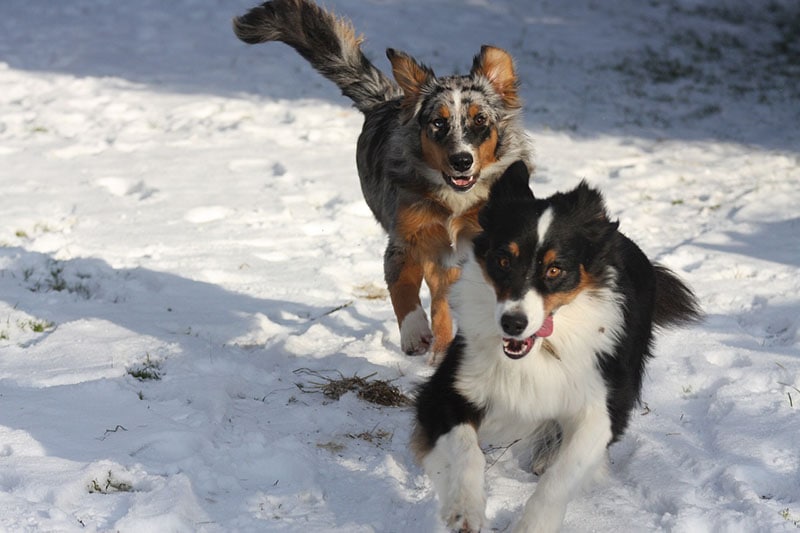
Origin
The Australian Shepherd is a relatively new breed, having been developed in the United States in the 19th century. They were originally bred to be working dogs on ranches, and they were later used as military and police dogs. Australian Shepherds are now popular family pets and working dogs.
Diet
Australian Shepherds are active dogs, so they need a diet that will give them the energy they need to stay active. A high-quality dog food that is rich in protein and fat is a good option for an Australian Shepherd. You should also make sure to give them plenty of fresh water to drink, as they can become dehydrated easily.
Exercise
Australian Shepherds need a lot of exercise. A daily walk or run is a good way to keep them happy and healthy. You can also take them to the park to play fetch or Frisbee or enroll them in an obedience or agility class.
If you’re thinking about getting an Australian Shepherd, be sure to do your research to make sure that they are the right breed for you. They are intelligent, active dogs that need plenty of exercise and training to stay happy and healthy.


Australian Shepherd FAQs
Q: Are Australian Shepherds aggressive?
A: No, they are not an aggressive breed. However, they are naturally protective and will bark to alert you to any potential danger.
Q: Are Australian Shepherds good with kids?
A: Yes, they are typically good with children. However, because they are a herding breed, they may try to herd small children if not properly trained.
Q: Are Australian Shepherds good guard dogs?
A: Yes, they make excellent guard dogs thanks to their protective instincts.
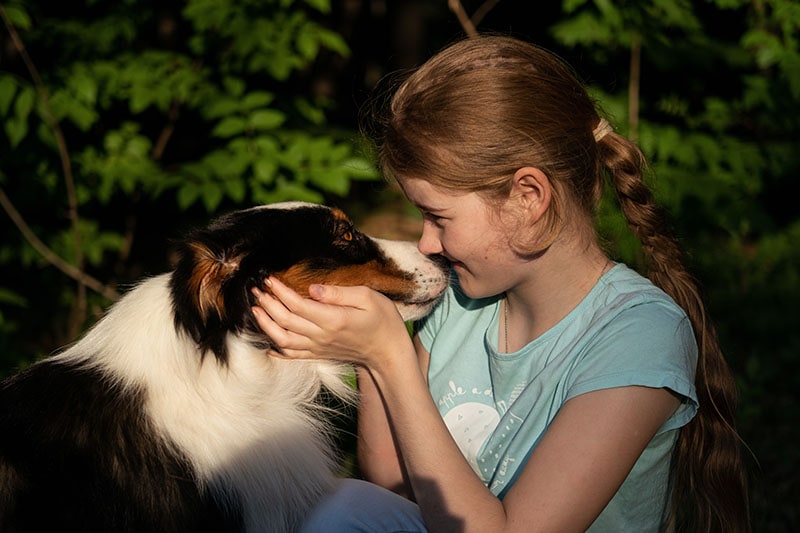
Q: Do Australian Shepherds protect property or just people?
A: They will protect both people and property. However, they are more likely to bark and alert you to danger than to actually confront an intruder.
Q: Do Australian Shepherds need a lot of space?
A: They do best in a home with a large yard where they can run and play. However, they can also do well in an apartment if they are taken outside a lot throughout the day and not left alone.

In Conclusion
Australian Shepherds are intelligent, active dogs that need plenty of exercise and training to stay happy and healthy. They are loyal and protective dogs that make great family pets. However, they need plenty of exercise and socialization to reach their full potential. If you are considering adding an Australian Shepherd to your home, be prepared to give them the time, attention, and training that they need to thrive.
Featured Image Credit: Felipe Cespedes G, Shutterstock
